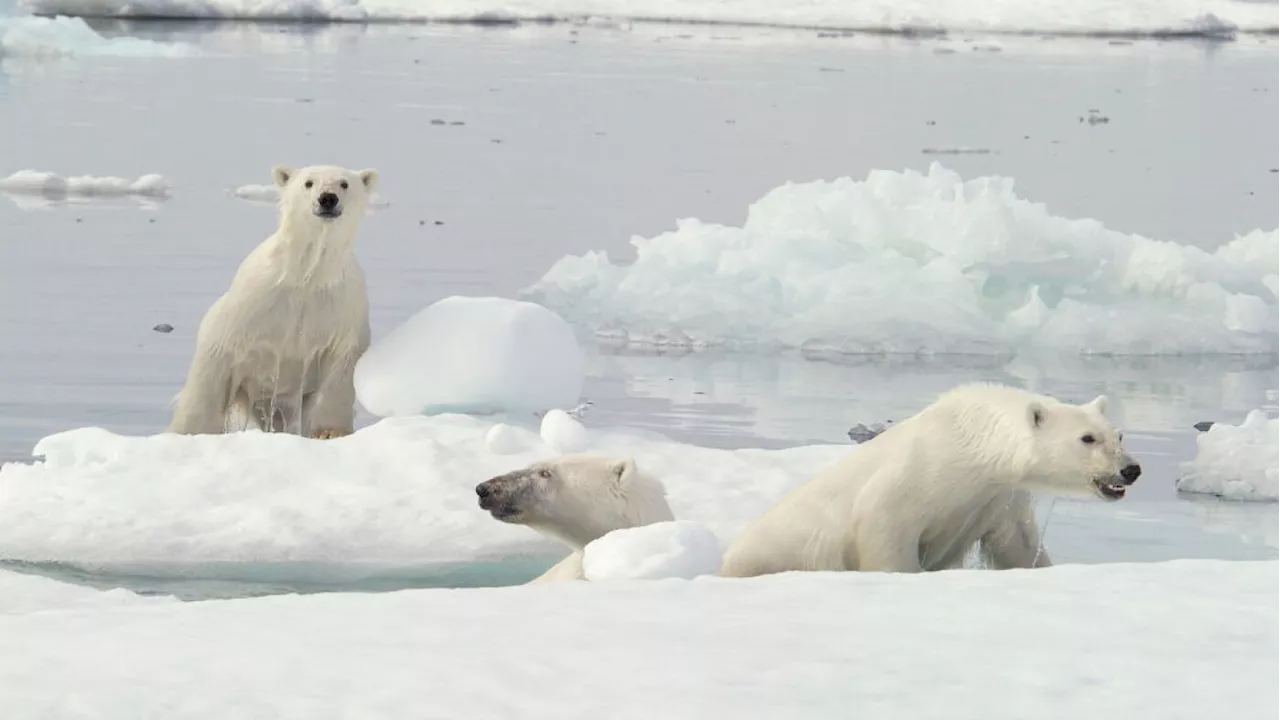Scientists discovered that polar bear fur's unique greasy compounds prevent ice formation, outperforming even ski waxes. This finding could inspire eco-friendly alternatives to traditional anti-icing materials.
iframe src="https://www.npr.org/player/embed/nx-s1-5279474/nx-s1-5349379-1" width="100%" height="290" frameborder="0" scrolling="no" title="NPR embedded audio player">hide caption's interest in polar bear fur began while she was watching a German quiz show.
Bodil initially thought that polar bear fur might have structural properties that prevent ice from forming. She and her colleagues used high-powered microscopes to zoom in on the fur, but"we couldn't really see anything special, they just looked normal," says Holst."We started to suspect, there's more to this than structure."
This combination makes polar bear fur highly resistant to freezing, Holst says. Lab tests showed that it performed about as well as fluorinated ski waxes, which have been banned in Norway for environmental reasons."That was quite amazing, that polar bear fur does just as well as these very superior skiing waxes" says Holst.
POLAR BEARS ANTI-ICING FUR GREASE ENVIRONMENT
United States Latest News, United States Headlines
Similar News:You can also read news stories similar to this one that we have collected from other news sources.
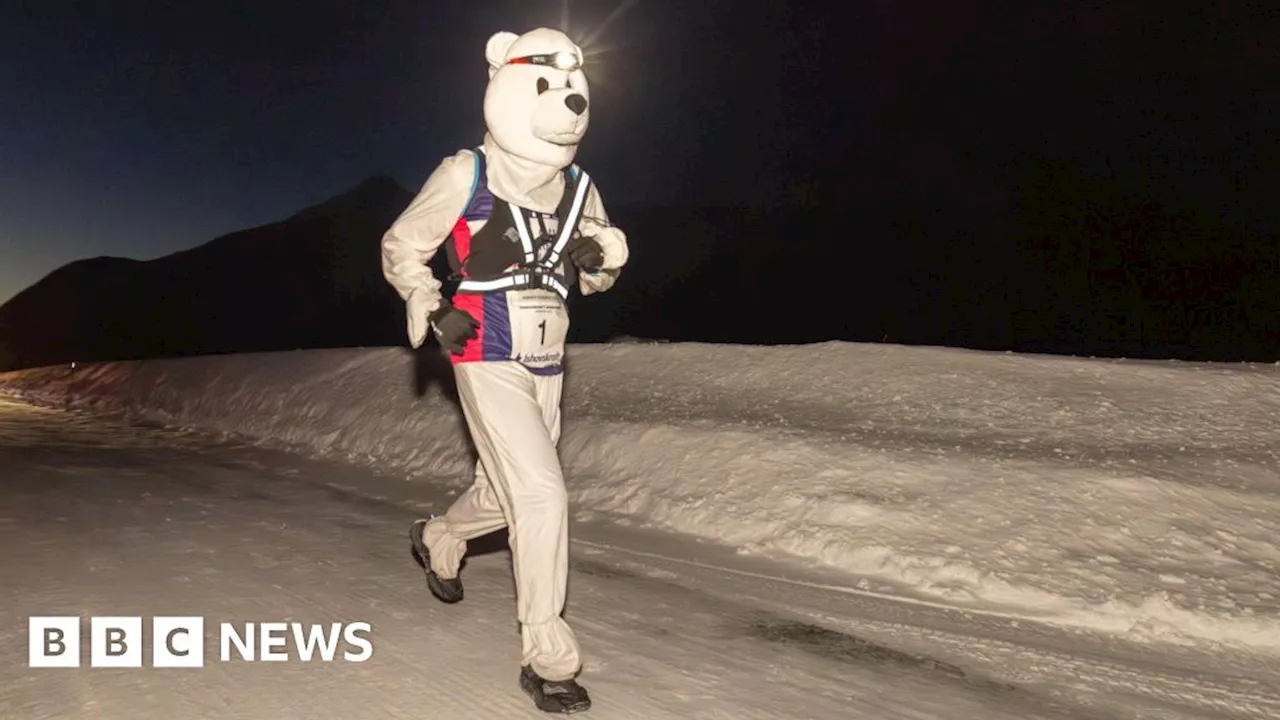 PE Teacher Sets World Record Running a Polar Marathon in Polar Bear CostumeGill Punt, a PE teacher from Worcestershire, completes the Polar Night Marathon in Norway dressed as a polar bear, setting a world record for the fastest ice marathon in a mammal costume.
PE Teacher Sets World Record Running a Polar Marathon in Polar Bear CostumeGill Punt, a PE teacher from Worcestershire, completes the Polar Night Marathon in Norway dressed as a polar bear, setting a world record for the fastest ice marathon in a mammal costume.
Read more »
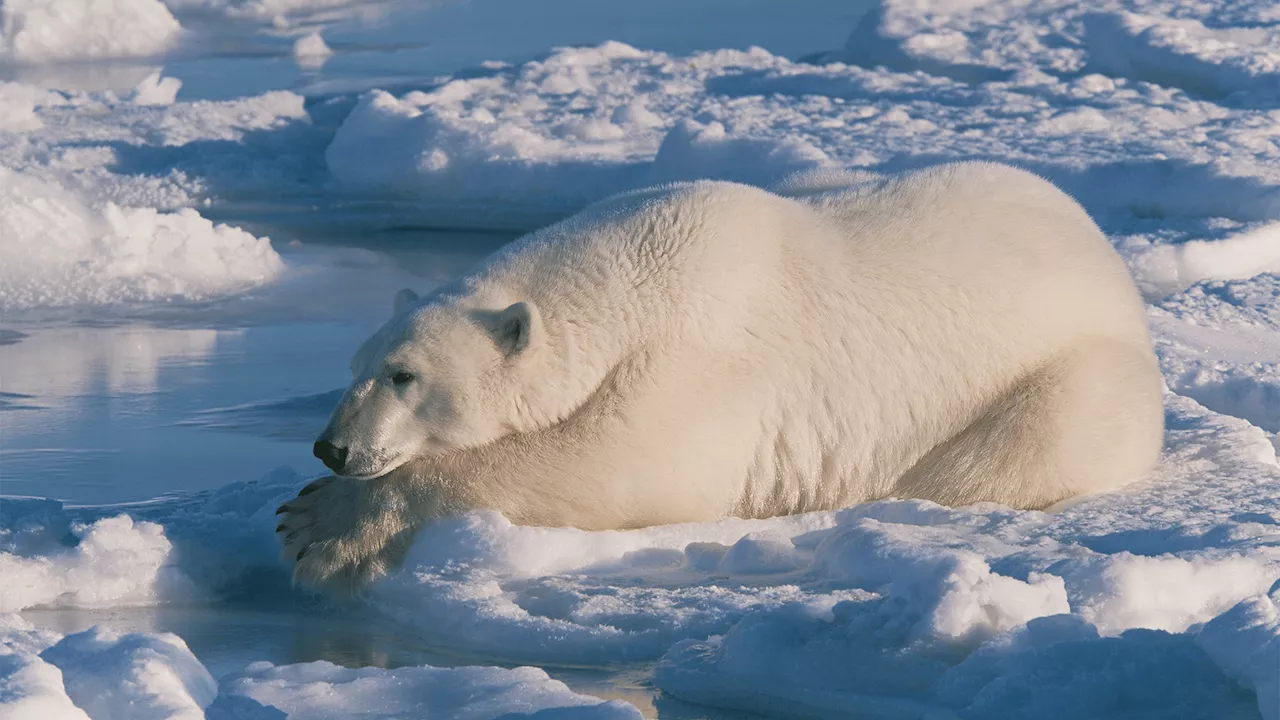 Polar Bear Greasy Hair Holds Key to Anti-Ice SecretA new study reveals how the sebum coating on polar bear fur prevents ice accumulation, shedding light on their Arctic survival strategy and inspiring the development of eco-friendly anti-icing materials.
Polar Bear Greasy Hair Holds Key to Anti-Ice SecretA new study reveals how the sebum coating on polar bear fur prevents ice accumulation, shedding light on their Arctic survival strategy and inspiring the development of eco-friendly anti-icing materials.
Read more »
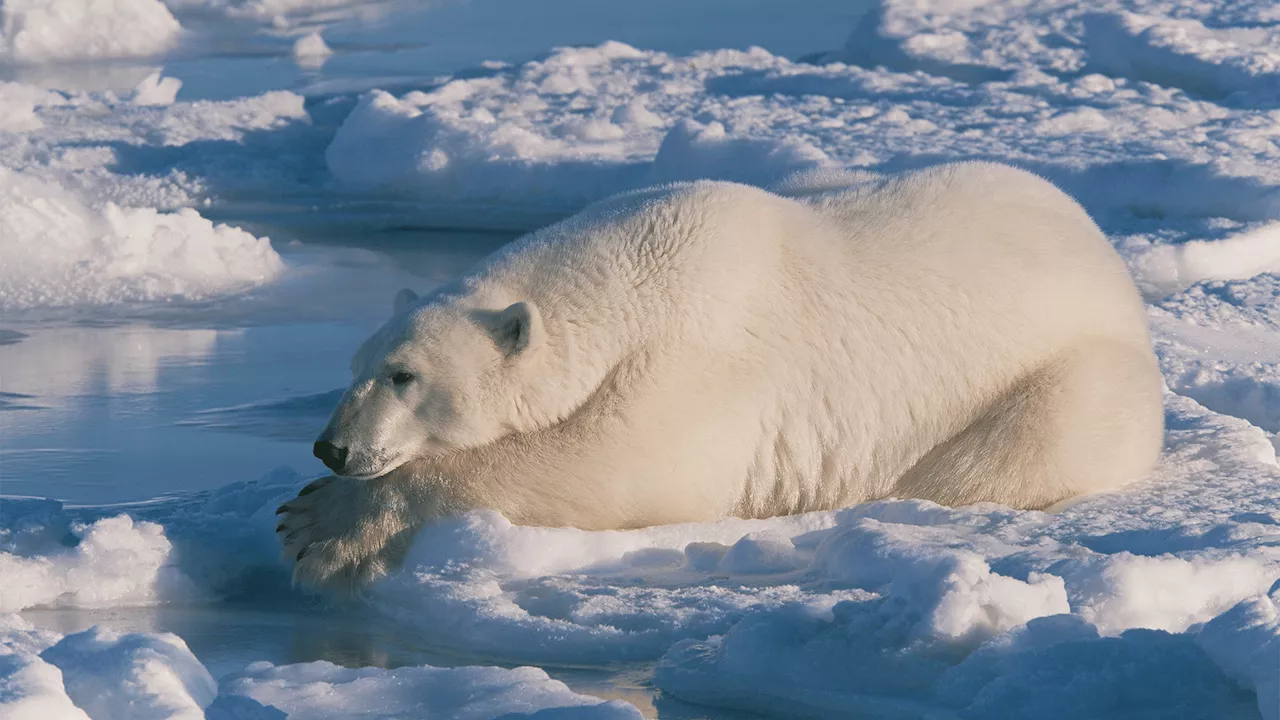 Polar Bear Hair Grease Holds Secret to Ice-Free SurvivalA new study reveals that the sebum on polar bear fur plays a crucial role in preventing ice accumulation, offering insights for developing sustainable anti-icing materials.
Polar Bear Hair Grease Holds Secret to Ice-Free SurvivalA new study reveals that the sebum on polar bear fur plays a crucial role in preventing ice accumulation, offering insights for developing sustainable anti-icing materials.
Read more »
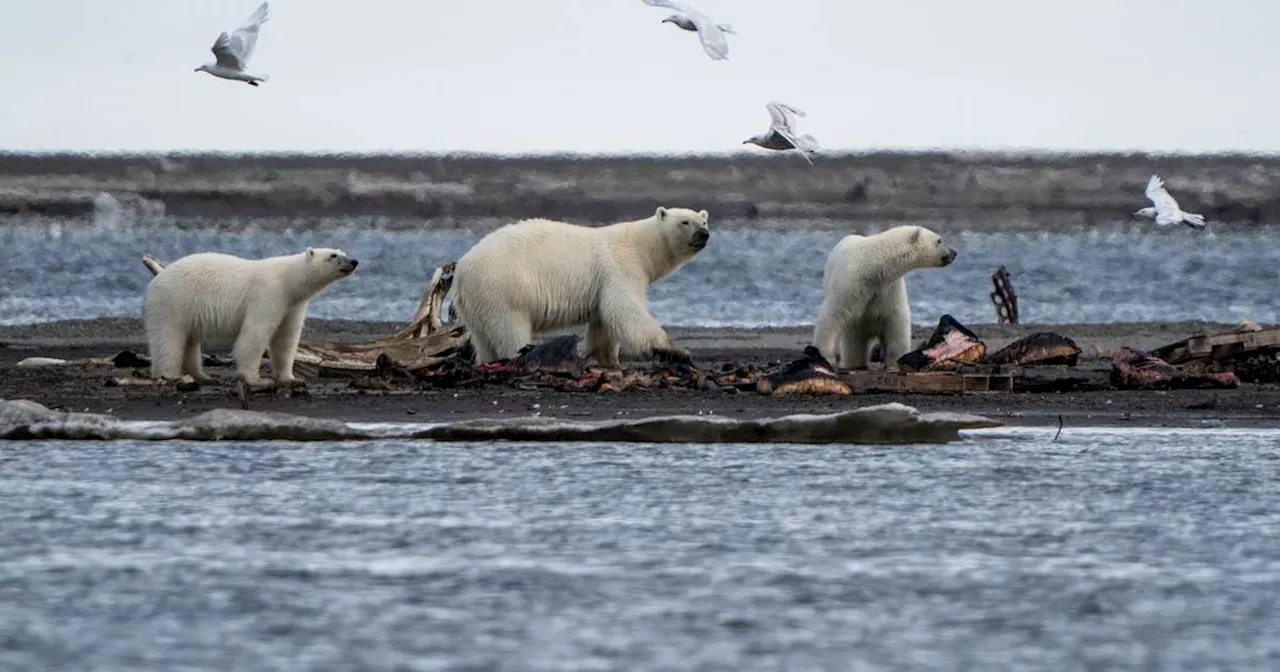 Polar Bear Grease Holds Secret to 'Forever Chemical' AlternativesThe oily substance secreted by polar bears' skin may hold the key to developing environmentally friendly coatings that can resist icing.
Polar Bear Grease Holds Secret to 'Forever Chemical' AlternativesThe oily substance secreted by polar bears' skin may hold the key to developing environmentally friendly coatings that can resist icing.
Read more »
 Polar Bear Sebum Holds the Secret to Ice RepellencyScientists have discovered that the oil on polar bear fur, called sebum, prevents ice from sticking, a key adaptation for survival in the Arctic.
Polar Bear Sebum Holds the Secret to Ice RepellencyScientists have discovered that the oil on polar bear fur, called sebum, prevents ice from sticking, a key adaptation for survival in the Arctic.
Read more »
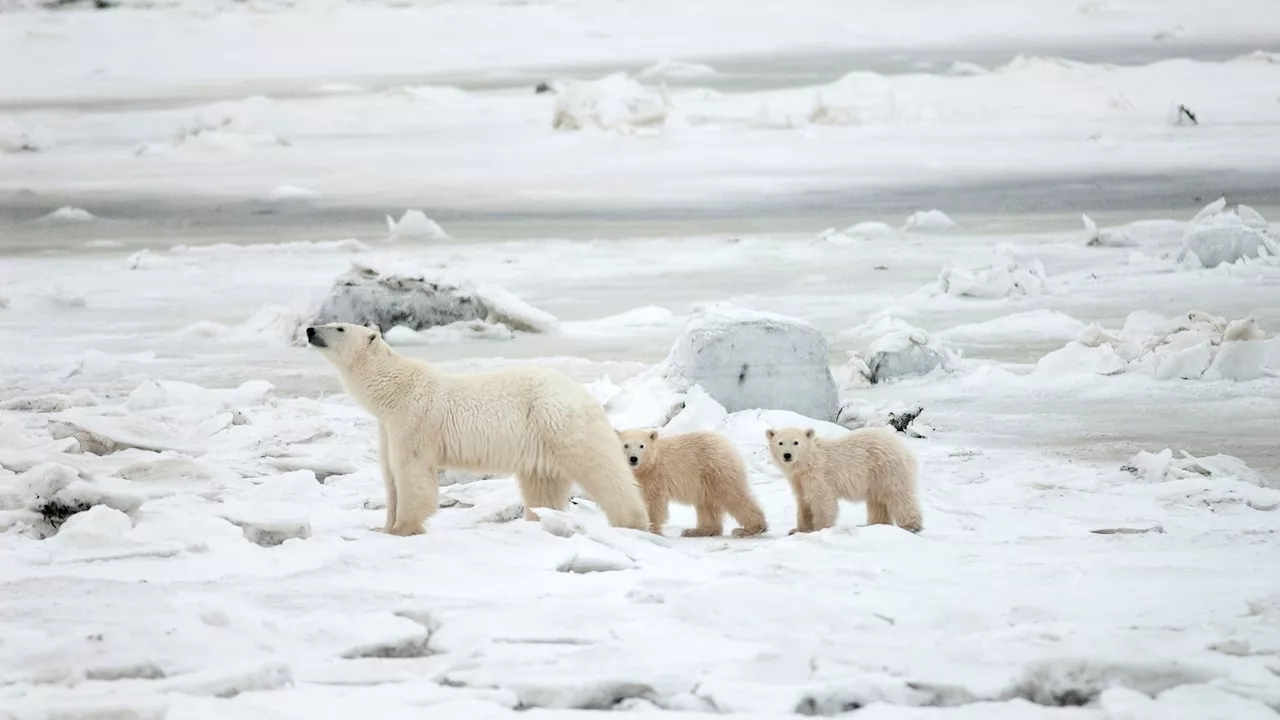 Climate Change Drastically Reduces Polar Bear Population in Canada's Hudson BayClimate change is significantly impacting polar bear populations in Canada's Hudson Bay, leading to a 50% decline since the mid-1990s. The melting of Arctic sea ice, crucial for their hunting and survival, is forcing polar bears to spend less time on the ice, leading to energy deficits and jeopardizing cub survival.
Climate Change Drastically Reduces Polar Bear Population in Canada's Hudson BayClimate change is significantly impacting polar bear populations in Canada's Hudson Bay, leading to a 50% decline since the mid-1990s. The melting of Arctic sea ice, crucial for their hunting and survival, is forcing polar bears to spend less time on the ice, leading to energy deficits and jeopardizing cub survival.
Read more »
